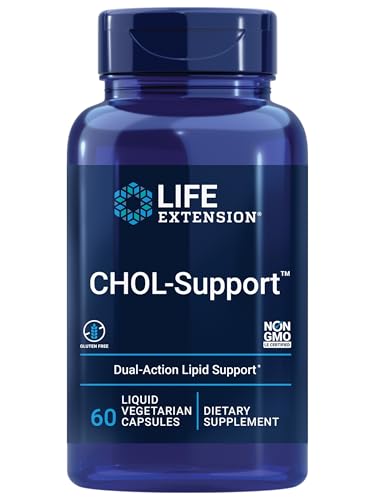Vitamin B5 & Alzheimer's: Could It Help?
Quick Summary: A recent study found that people with Alzheimer's disease had lower levels of Vitamin B5 (pantothenic acid) in their brains. This suggests that a lack of B5 might be linked to the brain damage seen in Alzheimer's.
What The Research Found
Researchers looked at the brains of people with Alzheimer's disease and compared them to healthy brains. They discovered that people with Alzheimer's had significantly less Vitamin B5 in several areas of their brain. The areas with the lowest B5 levels were also the areas most damaged by the disease. Vitamin B5 is important for brain health because it helps create chemicals needed for brain function.
Study Details
- Who was studied: The study looked at brain tissue from 9 people with Alzheimer's and 9 people without the disease.
- How long: The study analyzed brain tissue collected after death, so there was no "duration" in the traditional sense.
- What they took: This study did not involve giving anyone Vitamin B5. It only measured the levels of B5 already present in the brain.
What This Means For You
This research is still in the early stages. However, it suggests that making sure you get enough Vitamin B5 might be important for brain health. Vitamin B5 is found in many foods, so eating a balanced diet could help.
- Foods rich in Vitamin B5: Include foods like eggs, meat, whole grains, and some vegetables in your diet.
- Talk to your doctor: If you're concerned about your brain health, talk to your doctor about your diet and whether a supplement might be right for you.
Study Limitations
It's important to remember that this study has some limitations:
- Small study size: The study only looked at a small number of people, so more research is needed.
- Not a cause-and-effect study: The study showed a link between low B5 and Alzheimer's, but it doesn't prove that low B5 causes the disease.
- No treatment tested: The study didn't test whether taking Vitamin B5 could help people with Alzheimer's.
Technical Analysis Details
Key Findings
The study observed significantly lower vitamin B5 (pantothenic acid) levels in the brains of individuals with sporadic Alzheimer’s disease (AD) compared to controls. Deficiency was most pronounced in brain regions heavily affected by AD pathology, including the hippocampus, entorhinal cortex, and middle temporal gyrus. Vitamin B5, a precursor to coenzyme A (CoA) and acetyl-CoA, supports acetylcholine synthesis and myelin formation—both impaired in AD. The authors hypothesize that cerebral B5 deficiency may contribute to neurodegeneration and suggest that oral supplementation could offer a novel therapeutic avenue.
Study Design
This was an observational case-control study using postmortem brain tissue. Researchers analyzed seven brain regions (e.g., hippocampus, white matter) from 9 AD cases and 9 age-matched controls via gas chromatography-mass spectrometry (GC-MS). The sample size was small (n=18 total), and no demographic details (e.g., age, sex) were provided in the summary. The study aimed to validate metabolomic findings of B5 differences between AD and controls.
Dosage & Administration
No intervention was conducted in this observational study. The authors propose oral vitamin B5 supplementation as a potential treatment but did not test specific doses or administration protocols.
Results & Efficacy
AD brains showed "widespread, severe" vitamin B5 deficiency compared to controls, with the most significant depletion in regions linked to AD pathology. While exact concentrations and statistical metrics (e.g., p-values) were not reported in the summary, the deficiency correlated spatially with white matter damage. The study highlights B5’s role in CoA-dependent processes (e.g., acetylcholine production, myelin synthesis) as a mechanistic link to AD progression.
Limitations
- Observational design: Cannot establish causality between B5 deficiency and AD.
- Small sample size: n=9 per group limits statistical power and generalizability.
- Postmortem tissue limitations: Potential confounding factors (e.g., agonal state, medication use) were not controlled.
- Lack of dietary/peripheral data: No assessment of systemic B5 levels or intake history.
- No mechanistic evidence: Direct evidence linking B5 deficiency to neurodegeneration in AD is lacking.
Clinical Relevance
This study identifies a novel association between cerebral vitamin B5 deficiency and AD pathology but does not prove supplementation improves outcomes. While B5 is safe and bioavailable, its role in AD prevention/reversal remains speculative. Supplement users should note that current evidence does not support B5 as a treatment for AD, though maintaining adequate B5 intake may support general brain health. Larger longitudinal studies and clinical trials testing B5 supplementation in early-stage AD patients are needed to validate these findings.
Note: Analysis is based solely on the provided summary; full statistical details (e.g., p-values, effect sizes) were not included in the abstract. Always consult a healthcare provider before starting supplements for neurodegenerative conditions.
Original Study Reference
Cerebral deficiency of vitamin B5 (d-pantothenic acid; pantothenate) as a potentially-reversible cause of neurodegeneration and dementia in sporadic Alzheimer's disease.
Source: PubMed
Published: 2020
📄 Read Full Study (PMID: 32416962)




